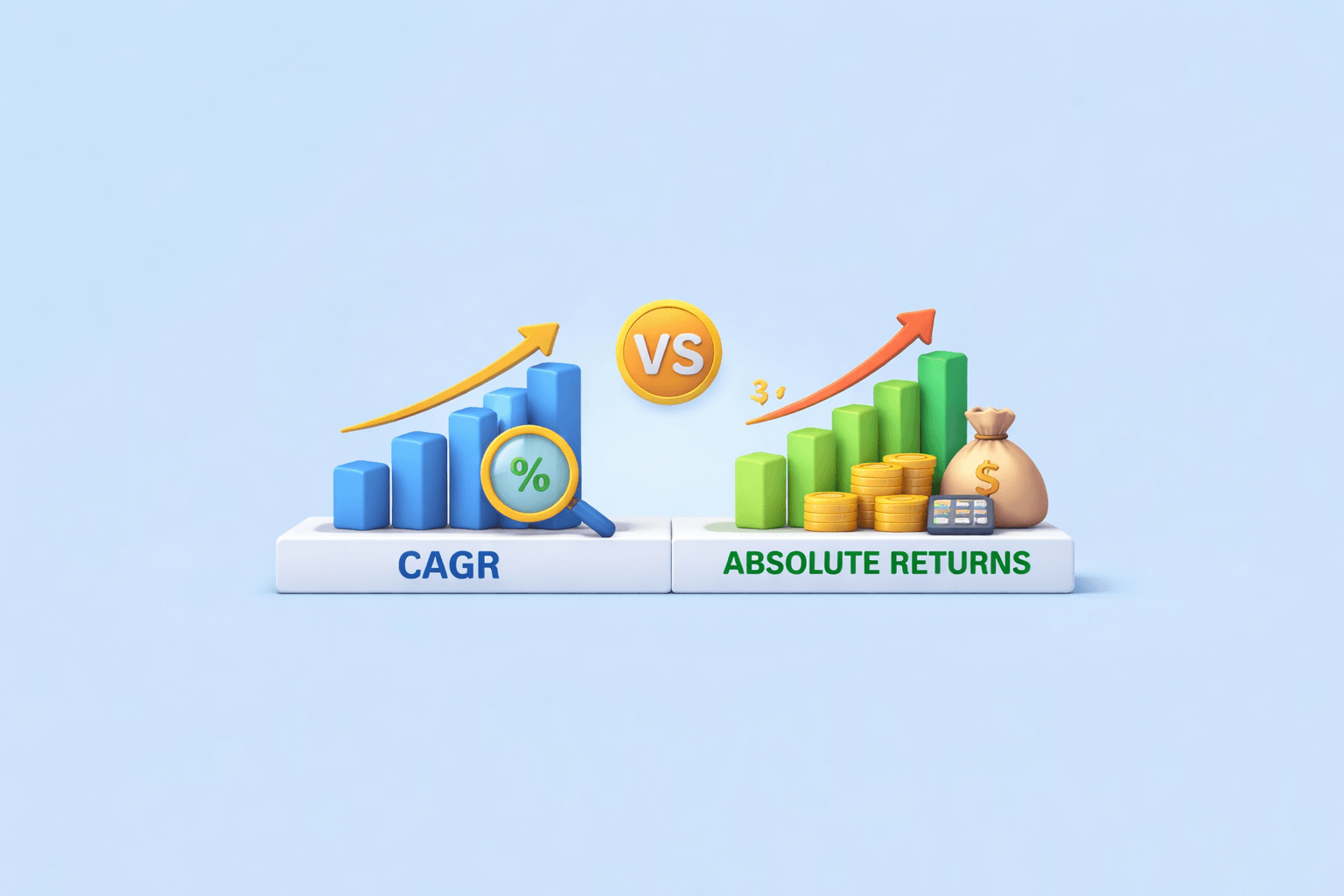- Home
- Blog
- Mutual Funds
- Mutual Fund Redemption
- Mutual Fund Redemption
Mutual Fund Redemption

- Published Date: September 18, 2024
- Updated Date: June 17, 2025
- By Team Choice
Managing personal finance is an issue of strategic investment decisions. Life is so uncertain, and quite often, one needs quick access to funds or a change in financial strategy. Knowing when and how to redeem your mutual funds could be a vital part of managing your investments. Whether you have an unexpected expense or are re-evaluating the performance of your portfolio, mutual fund redemption offers a solution.
In this blog, we delve deep into all the critical aspects of mutual fund redemption, including the processes involved, the tax implications, and the considerations you must make in order to be able to decide correctly.
What is Mutual Fund Redemption?
Redemption of a mutual fund refers to the process of returning your investment to a mutual fund scheme. A mutual fund redemption refers to when an investor sells their units back to the mutual fund house at the prevailing Net Asset Value (NAV) in lieu of cash. You may either redeem a specific number of units or the whole corpus invested in the scheme.
If you submit your redemption request before 3 pm on market trading days, the same day's NAV is considered. Requests initiated after 3 pm are considered with the next day's NAV.
When is the Redemption Amount Credited?
The time taken for the credit of redemption amount depends upon the type of fund:
- Liquid Funds: 1-2 working days
- Debt Funds: 2-3 working days
- Equity Funds: 3-4 working days
Mutual Fund Redemption Vs Selling Stocks
Unlike the selling of stocks, mutual fund redemption is different, even though the demat account plays a vital role in both cases. The distinguishing features between the two are shown in the table given below:
| Aspect | Mutual Fund Redemption | Selling Stocks |
|---|---|---|
| Process | Redeem units directly with the mutual fund house | Sell shares to a buyer in the secondary market |
| Pricing | Based on the closing NAV of the day the redemption request is received | Based on the market price at the time of the sale |
| Obligation to Buy | Fund house is obligated to buy back units | No obligation; sale depends on finding a willing buyer |
| Convenience | Simpler, as no need to find a buyer | More complex, as it requires finding a buyer in the market |
Types of Mutual Fund Redemption
Mutual funds are highly liquid, and hence, the redemption and credit to your account happen quickly. You can redeem your mutual fund units in any of the following ways:
- Unit-Based Redemption: You need to specify the number of units you want to redeem, in which case the prevailing NAV determines the amount you get.
- Amount-Based Redemption: You quote the redemption amount, and the quantity of units redeemed is arrived at by dividing the amount by the NAV.
- Full Redemption: You redeem the entire invested corpus from the mutual fund.
Applicable Taxes and Exit Loads
The gains on redemption are liable for capital gains taxation. In the case of equity funds held for a period less than one year, a short-term capital gain of 15% is levied. Returns from debt funds held for less than three years are taxed as per your applicable income tax rate.
The rate of long-term capital gain tax is 10% in the case of equity funds held for more than one year and 20% in the case of debt funds held for more than three years.
An exit load of up to 1% may be charged in case you redeem before the minimum holding period.
How to Redeem Mutual Funds?
Mutual fund redemption can be made online or offline, whichever you prefer, as laid down by the Asset Management Company (AMC). Here's how each works:
- Offline Redemption Through ( AMC/ Registrar and Transfer Agent, RTA/ Agents/ Distributors): In an offline redemption, a signed redemption request form has to be sent to the office of the AMC or Registrar. You may, however, use the services of an agent or a distributor for the same. The form must be filled in with information such as applicant name, folio number, and units/amount to be redeemed. The net proceeds after deducting the statutory deductions, if any, shall be credited to your registered bank account or dispatched through cheque in case an IFSC code is not provided.
- Online Redemption (AMC/RTA/Agents/Distributors/MF Central/Trading/DEMAT Account): To redeem online, log in to the website for mutual fund investment, Registrar and Mutual Fund Distribute (MFD), MF Central with your folio number, PAN, etc. After selecting the scheme, specify the units or redemption amount.
- Redemption through Demat Account: If you bought your mutual funds through a DEMAT or trading account, redeem them through the very same account. The redemption amount shall be electronically transferred to the bank account linked with your Demat account.
Keep an eye out for probable charges like exit loads or capital gains taxes when redeeming the mutual fund holdings. Various funds have different exit loads applied for different durations, with some schemes having a lock-in period, as in the case of Equity Linked Savings Scheme (ELSS). Evaluate the implications of an exit load and the incidence of taxation when making your decision.
When to Redeem Mutual Funds?
Before deciding to redeem your mutual fund units, a host of factors need to be weighed so that the decision is in alignment with your financial goals and circumstances. Here's how to make an informed choice:
- Chronic Underperformance: If a mutual fund consistently performs below the benchmark performance index for a couple of years, then it is time for redemption. Such persistent underperformance could be indicative of an underlying problem at the operating or strategic levels of the mutual fund, which is not expected to be corrected in the near term. A performance review related to similar funds and benchmark indices would help determine whether the poor performance of the fund was an anomaly or part of the long-term trend.
- Emergency Needs: In the case of urgent financial needs, redemption of an investment in a mutual fund is possible. However, you must first seek other sources of funds, such as savings or any other type of investment, so as to maintain long-term investment goals. Assess the impact of redemption on your overall portfolio, considering any probable exit loads or tax implications to ensure that the best decision is made to meet your immediate needs.
- Strategy Change: If the investment strategy of the mutual fund has changed, and that strategy no longer fits your risk tolerance or investment objective, then redemption is in order. For example, suppose a fund invested in growth-oriented securities changes to a conservative investment strategy. In that case, you might need to redeem and reinvest in another that fits your risk profile and financial goals if higher growth is desired.
- Achievement of Goals: If your investment objectives are accomplished, say if the amount targeted for any specific purpose is met or achieved, it would be appropriate to redeem the mutual fund investment. Make sure to review your investment performance and the fund house's current position before redemption. Also, analyse if there will be any cost for redemption and how redemption affects the financial plan.
Things to Remember While Redeeming Mutual Funds
The process for redeeming mutual funds is easy, but there are a number of variables that must be considered, including:
Timing of Redemption
The settlement cycle of mutual funds will be based on their category and generally ranges from T+1 to T+7 business days. Business days do not involve weekends, so you need to check the settlement cycle prior to submitting your request for redemption.
The NAV is the basis for the settlement of mutual fund transactions. The cut-off timing for NAV is 3 pm. Applications received prior to 3 pm are processed at the current day's NAV, while applications received after 3 pm are based on the next day's NAV. This timing can make a big difference in your final returns if there is a big difference between the two NAVs.
Capital Gains Tax
The holding period of your mutual fund affects the tax treatment of your gains:
- Equity Funds: Gains from investments held less than 12 months are regarded as short-term and charged at approximately 15% - gains from assets held over 12 months are classified as long-term. Long-term capital gains up to INR 1 lakh are nil, while their excess amount is charged at a rate of 10%.
- Debt Funds: Short-term capital gains, if sold before three years, are taxed at the investor's applicable income tax rate. The long-term capital gains shall be taxed at 20% with indexation benefits.
Generally, short-term gains are much more heavily taxed compared to long-term gains. Taking into consideration these tax implications while planning your redemption will help you understand your overall returns.
Exit Load and Other Charges
Exit load is also levied on less than the prescribed time redemption of mutual funds, generally ranging from 1% to 2%, depending upon the fund type. Further, 0.001% Securities Transaction Tax-STT is charged by the Ministry of Finance when buying and selling equity or equity-oriented funds, but not on debt funds. These charges and taxes can affect your net returns. Be sure to factor these into your decision before you actually redeem your mutual fund units.
Conclusion
Redeeming your mutual funds is something over and above accessing cash; it is a strategic decision that can affect your financial future. You will be able to redeem them at the right time and for the right reasons once you carefully think over when and why to redeem them, thus aligning this action with your broader financial goals. It is always prudent to take into view the performance of the fund, tax implications, and exit loads, if any, before making such a decision.
This will not only save you from certain expenses but also help you achieve financial growth in the long run. Thus, complete knowledge about mutual fund redemption enables you to handle your investments with more awareness and keeps you on course toward achieving your goals.
Interested in upgrading your investment portfolio with mutual funds? Explore the Choice platform to find the best investment avenues with flexible redemption policies.
Recommended for you

CAGR Vs Absolute Returns in Mutual Funds: Key Differences You Should Know

FII DII Data - Live Data

Share Market Prediction For Tomorrow
